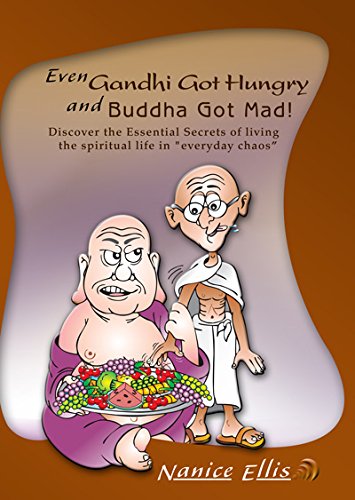11th January 2016
By Nanice Ellis
Contributing Writer for Wake Up World
Perfectionism is sneaky – on the surface it sounds like it could be a good thing. After all, what’s wrong with perfection?
It is true that perfectionism is a strategy for success, but when you measure success by your ability to be consistently perfect, success is perpetually out of reach. The strategy of perfectionism, sooner or later, does the opposite of what it was intended to do.
If you look closely you will see that, like a wolf in sheep’s clothes, perfectionism is just another name for self-judgment. In the name of perfection, we give ourselves permission to be self-critical and undermining every time we fall short. Never quite meeting our own standards of perfection, because good is not good enough, we become our own worst enemies. If there is such a thing as perfect, and we believe that we must live up to this unrealistic ideal in order to succeed, we set ourselves up for perpetual disappointment, failure and maybe even depression.
Why perfectionism is a terrible strategy for success…
Perfectionism is a Moving Target: If somehow you do reach the state of perfection, you will likely discover that there are still improvements to make, and what you thought would be perfect is full of unanticipated flaws – which, of course, must be corrected in order to really reach the perfect state. Perfectionism is a moving target, because what is perfect one day, may not be perfect the next. There is always another level, and, always, something more to perfect.
Sorting for Imperfection: Perfectionism makes you notice everything that is not perfect. If you are seeking perfection, you will not see perfection; you will see everything that is not up to par. When we are driven by perfectionism, we develop laser beam focus designed to pinpoint every aspect of imperfection. Even the slightest imperfection will stand out like a sore thumb, and, in fact, that may be all we notice; 99% of our work may be excellent by all standards, but, we only notice that 1% that isn’t. Even a slight imperfection impedes our ability to celebrate our work, and experience fulfillment. In this way, perfectionism is in conflict with peace and happiness. If our results are never good enough, we will never feel the deep satisfaction and joy that comes from a job well-done.
Perfectionism Creates Procrastination: Some might say that perfectionism motivates them to do their best, and this could be true, but, it also generates a tremendous amount of stress and pressure, which can contribute to procrastination. If your goal is perfection, and you criticize yourself for not measuring up, it might be a great deal harder to get started in the first place.
Impeding Inspiration: Inspiration is a result of our connection to Spirit. If we are judging ourselves in the name of perfection, we disconnect from the Source that inspires, cutting ourselves off from any possibility of Divine Perfection. When we are driven by perfectionism, we allow our fragile egos to run the show, and the result is action, or reaction, that is void of real and authentic meaning, and, in our attempt to control the process, or the outcome, we disconnect from the rhythm of the Universe and we block the flow.
Fear of Failure Causes Inhibition: It usually takes going out of your comfort zone in order to create a life that is most fulfilling and joyful, but the need perfection makes that comfort zone even smaller and more limited. Because perfectionism is driven by a fear of failure, if you are afraid to fail, you may avoid taking chances on things involving a learning curve, or that require feedback from experience. This means that you might base your life on the “sure thing” and never realize your potential for innovation and creativity.
Suppression is the Name of the Game: When we believe that anything less than perfect is not worthwhile, we limit our creativity and we suppress what might have been a brilliant work of art. The unfolding years show us that if you are waiting to produce perfection, you will never frame that painting or publish that book. How often do your standards of perfection keep you from expression?
Perfection is Subjective: Who is to say what is perfect anyway? Perfection is subjective, and what is perfect to one person is far from perfect to another. This is especially apparent when it comes to physical beauty. The perfect body in one culture is “too this” or “not enough that” in another. If you live in a culture where you can never be too thin, you might be surprised to find that other cultures consider a more rounded physique to be most desirable. Go to any renaissance museum and you will see that voluptuous women were the preferred subject of art and sculpture, because they were considered the most perfect.
A Matter of Worth: If you look even closer, you will see that there is a huge connection between perfectionism and self-worth. Perfectionism is a strategy to gain a sense of worthiness, but the conditions are usually so high and difficult to meet that the attainment of self-worth never comes. When your sense of worth is entangled with being perfect and/or producing perfect results, you must meet your self-imposed conditions in order to feel worthy. Even if you are able to meet your own standards of perfection, the sense of worth doesn’t last long, and you will need another perfect accomplishment in order to sustain or regain feelings of worth. Perfectionism is often an excuse to beat yourself up.
Driven by Love
One of the things that most enthralled me while visiting Italy was the love and attention that chefs and servers placed on food preparation. I recall being mesmerized by a beautiful Italian waiter as he prepared a hot cocoa for my friend, all the while, singing an Italian love song. Without the slightest hint of distraction, he mindfully added all the ingredients, as if it was the most important job in the world. With mounds of freshly made whipped-cream on top, chocolate shavings, and an abundance of his love, he ceremoniously presented this work of art. My friends and I literally sat there admiring the cup of cocoa as if it were a priceless treasure. Must I add that it tasted as wonderful as it looked? The thing is, this was not a rare occasion – wherever we ventured in Italy, we experienced this type of excellence that is driven by love.
When we are driven by perfection, we often miss the point of why we are doing what we are doing. Perfection drives us in such a way that the goal or results become more important than the process, and when we bypass the process, we miss the whole point of life.
When we are driven by love, everything that we do transforms. It is no longer about perfect results – it is about the desire to express love in whatever we are doing. When we are driven by love, there is no room for fear of failure, or needing to be the best, in order to feel worthy. Love of self, love of others and love of the task at hand produces excellence.
The Sweet Spot
One of my passions is downhill skiing, but for years, when I skied, I wanted every turn to be perfect, consequently criticizing myself for making mistakes. As I was judging my last imperfect turn, I was distracted from the current one, thereby setting myself up for yet another imperfect turn, and another. My need for perfect turns took the joy out of skiing and made it into a stressful job.
Then, one day, everything changed. As I jumped into a steep bowl, filled with luscious untouched, fresh powder, I was so overcome with the immense beauty and magic of the mountain that I completely let go of the need for perfection. Without relying on my standard of self-conscious control, I trusted something greater than technique and, by the second turn, I became immersed in a rhythmic flow that effortlessly carried me from one turn to the next.
And then it happened. Something vastly greater than me — yet, which was me — took over and emerged as Presence. I was no longer just skiing, nor was I separate from skiing. I became the skiing. In an indescribable space beyond thought, I woke up in the sweet spot of divine expression that can only be accessed through total surrender.
Every turn was indeed perfect, but this time, I arrived at perfection through letting go of control, and trusting the process.
The control that comes from perfectionism separates us from the Sweet Spot where we are the divine channel of experience and expression. This is the Sacred Space we are all trying to attain, even if we don’t know it, but you cannot get there from perfection driven control. It is only through letting go, and allowing the creative spirit to take over that you can dance, paint, sing or do whatever inspires you in the Divine Sweet Spot of Life.
The Cure for Perfectionism
The cure for perfectionism is waking up, and remembering that you are unconditionally worthy, and no matter what you do, or how you do it, you are no less worthy. You are off the hook – you don’t need to prove anything to anyone (not even yourself) in order to have worth.
As long as you seek perfection, you will miss it by a mile, but without the need for perfection, so much more is possible.
When we are driven by love, we connect to the absolute source of love, and when we allow that omnipotent source to express through us, the result is inevitably something of exquisite value. There is nothing more blissful and fulfilling than being the channel for divine expression.
So, you can drop the conditions of perfectionism that you have made up, and you can also drop any facades that keep you hiding. You can free yourself from self-imposed restraints, and you can go out to dance in the sun, or sing in the rain. Your only job is to be you, and there is not another single being in all of creation who can fulfill that very special job.
In Love, Grace & Gratitude,
Nanice
Even Gandhi Got Hungry and Buddha Got Mad
A book by author Nanice Ellis…
It’s easy to express your spirituality when life is going the way you want it to, but what happens in the middle of everyday chaos, when your days are not long enough, your car breaks down, and your significant other is driving you crazy?
Nanice Ellis’ book “Even Gandhi Got Hungry and Buddha Got Mad!” is not about Gandhi… or Buddha — it is a book about you and your spiritual journey through the chaos of daily life, the challenge of the modern day seeker. This book will help you to discover the secrets to making every day the spiritual adventure it is meant to be, and what it really means to be a spiritual being having a very human experience…
“Even Gandhi Got Hungry and Buddha Got Mad” is available here on Amazon.com, or check out Nanice’s catalogue of books here on Nanice.com.
Previous articles by Nanice Ellis:
Source Article from http://wakeup-world.com/2016/01/11/the-cure-for-perfectionism-a-sneaky-name-for-self-judgment/
 RSS Feed
RSS Feed















 January 10th, 2016
January 10th, 2016  Awake Goy
Awake Goy 


 Posted in
Posted in  Tags:
Tags: 













